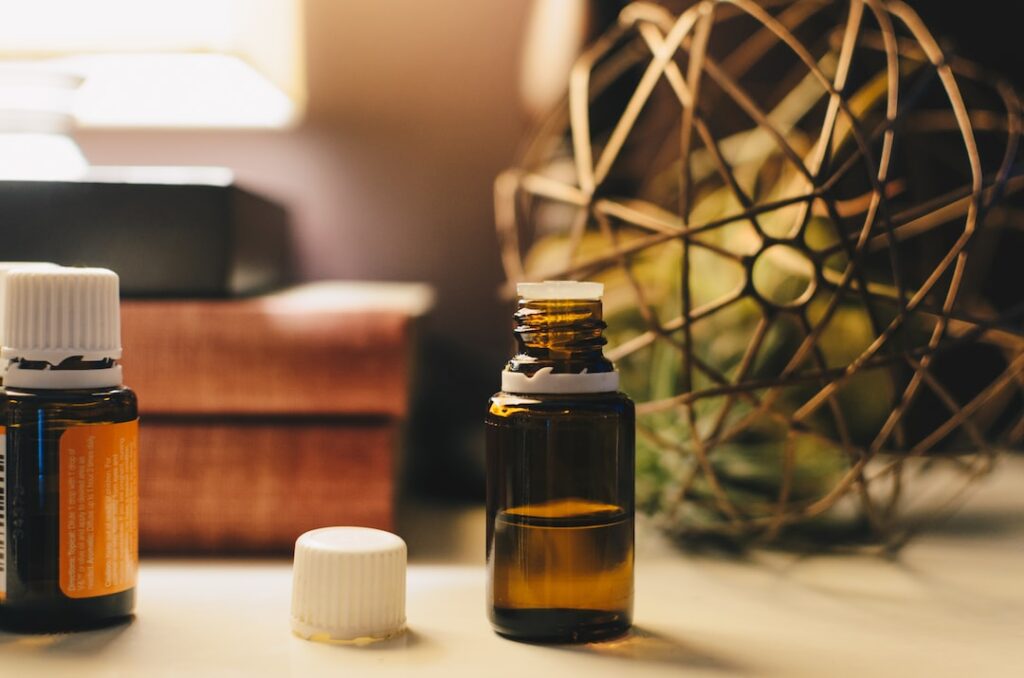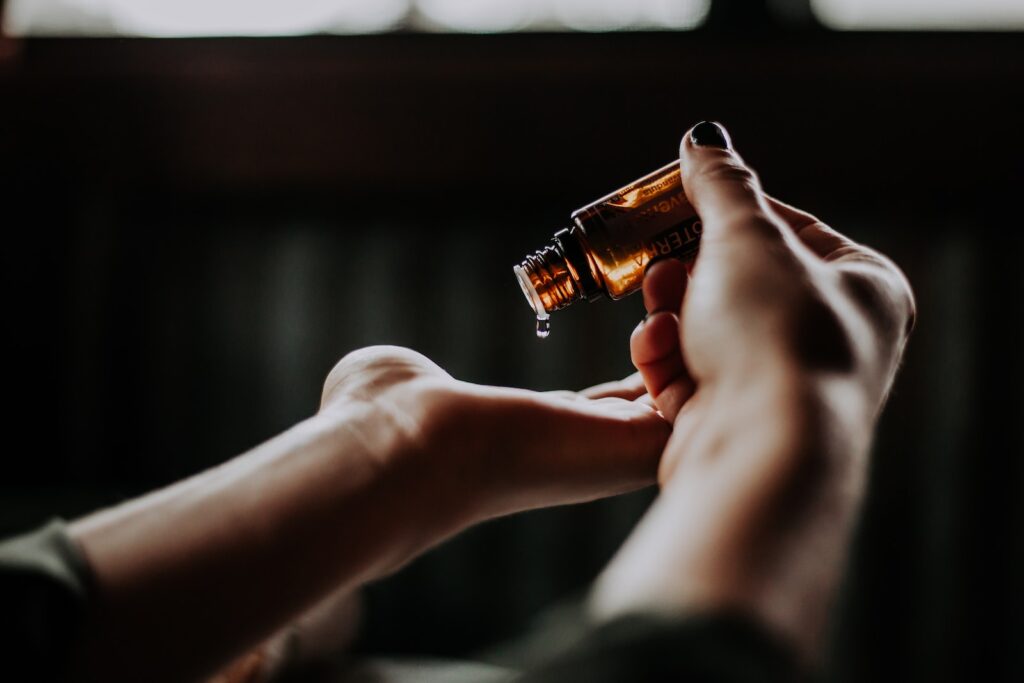
Aromatherapy is a natural healing practice that involves the use of essential oils extracted from plants. These oils are used to enhance both physical and emotional well-being, making it a popular form of alternative medicine. Essential oils have been used for centuries to treat various health problems. In this blog post, we will discuss the benefits of aromatherapy and how essential oils can transform your life.
1. What is Aromatherapy?
Definition of aromatherapy
Aromatherapy is a holistic healing practice that utilizes essential oils extracted from plants to enhance physical and emotional well-being. These oils are either inhaled or applied topically and are believed to activate the limbic system in the brain, which controls emotions, memories, and behaviors. Aromatherapy can be used to alleviate stress, anxiety, headaches, and other common ailments. Essential oils can also be blended to create unique scents that can enhance mood and create a relaxing atmosphere. It is important to note that aromatherapy should not be used as a substitute for medical treatment, but rather as a complementary therapy to support overall health and wellness. When using essential oils, it is important to follow safety guidelines and use only high-quality, pure oils. Aromatherapy can be enjoyed through diffusers, sprays, candles, and massage oils, making it a versatile and accessible practice for anyone seeking natural ways to improve their well-being.
A brief history of Aromatherapy
Aromatherapy has a rich history dating back to ancient civilizations such as Egypt, Greece, and Rome, where it was widely practiced. In these civilizations, essential oils were used for medicinal and spiritual purposes. The Egyptians were particularly known for their use of aromatic oils in religious ceremonies and embalming practices. The father of modern aromatherapy, Rene-Maurice Gattefosse, discovered the healing properties of lavender oil in the early 20th century. Gattefosse was a French chemist who accidentally burned his hand in his laboratory and found that lavender oil helped to heal it quickly and without scarring. This led him to study the therapeutic properties of essential oils more closely and to develop the modern practice of aromatherapy. In the 1950s, French surgeon Jean Valnet further advanced the use of aromatherapy in Western medicine by using essential oils to treat soldiers during World War II. Valnet found that essential oils were effective in treating wounds, infections, and other medical conditions. Today, aromatherapy is widely used as a complementary therapy in alternative and traditional medicine. It is often used in massage and other forms of bodywork, as well as in diffusers and inhalers for home use. Essential oils are believed to have a wide range of therapeutic properties, from relieving stress and anxiety to aiding in digestion and promoting better sleep. In conclusion, the history of aromatherapy spans thousands of years and has been used by many cultures throughout history for its healing properties. Today, it continues to be a popular and effective form of alternative medicine.
2. Benefits of Aromatherapy
1. Reduces Stress: Aromatherapy can help reduce stress levels by promoting relaxation and calming the mind. Scents like lavender, chamomile, and ylang-ylang are known for their stress-reducing properties.
2. Boosts Immune System: Essential oils used in aromatherapy have antimicrobial, antiviral, and antifungal properties that can help boost the immune system, preventing illnesses and infections.
3. Improves Sleep: Aromatherapy can help improve the quality of sleep by promoting relaxation and easing anxiety. Essential oils like lavender and chamomile are known for their sleep-inducing properties.
4. Relieves Pain: Certain essential oils used in aromatherapy have analgesic properties that can help relieve pain and inflammation. Peppermint and eucalyptus oils are known for their pain-relieving properties.
5. Enhances Cognitive Function: Aromatherapy can improve cognitive function by improving focus, alertness, and memory. Essential oils like rosemary and peppermint are known for their cognitive-enhancing properties.
6. Improves Mood: Aromatherapy can help improve mood by promoting relaxation and reducing stress levels. Scents like lemon and bergamot are known for their mood-enhancing properties.
7. Enhances Digestion: Certain essential oils used in aromatherapy have digestive properties that can help improve digestion and relieve digestive issues. Peppermint and ginger oils are known for their digestive-enhancing properties.
8. Relieves Headaches: Aromatherapy can help relieve headaches by promoting relaxation and reducing stress levels. Scents like peppermint and lavender are known for their headache-relieving properties.
9. Reduces Anxiety: Aromatherapy can help reduce anxiety levels by promoting relaxation and calming the mind. Scents like lavender and chamomile are known for their anxiety-reducing properties.
10. Improves Skin Health: Certain essential oils used in aromatherapy have antimicrobial and anti-inflammatory properties that can help improve skin health. Tea tree and lavender oils are known for their skin-enhancing properties.
11. Enhances Respiratory Function: Aromatherapy can enhance respiratory function by promoting relaxation and reducing stress levels. Essential oils like eucalyptus and peppermint are known for their respiratory-enhancing properties.
12. Improves Circulation: Aromatherapy can improve blood circulation by promoting relaxation and reducing stress levels. Essential oils like ginger and cypress are known for their circulation-enhancing properties.

In addition to the above benefits, aromatherapy is a natural and non-invasive form of therapy that can be safely used in conjunction with other medical treatments. It is easy to use and can be enjoyed in many different forms, such as diffusers, sprays, or bath oils.
However, it is important to note that essential oils are highly concentrated and should always be used with caution. Some oils may cause allergic reactions or interact with certain medications. It is recommended to consult with a qualified aromatherapist or healthcare provider before using essential oils for therapeutic purposes.
3. How to Use Essential Oils
There are 4 primary ways to use essential oils:
- Inhalation
- Topical application
- Diffusion
- Consumption (through use in cooking)
1. Aromatherapy: Essential oils can be used for aromatherapy by diffusing them in a room or adding a few drops to a hot bath to create a relaxing atmosphere.
2. Massage: Essential oils can be mixed with carrier oils like coconut or almond oil to create massage oils. They can be used for soothing sore muscles, reducing stress, and improving overall well-being.
3. Skincare: Essential oils can be added to face masks, toners, and moisturizers for their anti-inflammatory, antibacterial, and antioxidant properties.
4. Haircare: Essential oils can be added to shampoos and conditioners to promote healthy hair growth and reduce dandruff.
5. Inhalation: Essential oils can be inhaled directly from the bottle or by adding a few drops to a tissue or cotton ball. This can help alleviate respiratory issues like congestion or sinusitis.
6. Cleaning: Essential oils can be added to homemade cleaning solutions to add a fresh scent and disinfect surfaces. Lemon, tea tree, and eucalyptus oils are great for this.
7. Pest control: Essential oils like peppermint, citronella, and lavender can be used to repel insects and rodents.
8. Cooking: Certain essential oils like basil, oregano, and lemon can be used in cooking to add flavor and aroma to dishes. However, it’s important to use food-grade oils and follow proper dilution guidelines.
9. Mood management: Essential oils can be used to improve mood and reduce anxiety. Lavender, bergamot, and chamomile are great for this.
10. First aid: Essential oils like tea tree, lavender, and chamomile can be used to treat minor cuts, burns, and insect bites.
11. Yoga and meditation: Essential oils can be used during yoga and meditation practices to enhance relaxation and focus. Frankincense, sandalwood, and patchouli are great for this.
12. Travel: Essential oils can be used during travel to alleviate motion sickness, jet lag, and anxiety. Peppermint, ginger, and lavender are great for this.
13. Pet care: Essential oils can be used to repel fleas and ticks on pets, as well as to calm anxious pets during thunderstorms or car rides. However, it’s important to consult with a veterinarian before using essential oils on pets.
Conclusion
Aromatherapy is a safe and natural way to improve your physical and emotional well-being. Essential oils have numerous benefits and can transform your life in many ways. By incorporating aromatherapy into your daily routine, you can experience the amazing benefits of essential oils and live a healthier and happier life.
